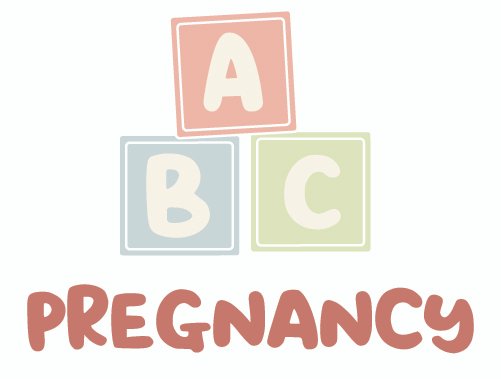Navigating Pregnancy and Health Insurance

Health insurance is an important part of taking care of yourself and your family, especially when you’re expecting a baby. It helps cover the costs of doctor visits, hospital stays, and other medical expenses related to pregnancy and childbirth. In this article, we’ll explore what health insurance is, how it works during pregnancy, and what you need to know to make sure you’re covered.
What is Health Insurance?
Health insurance is a type of coverage that helps pay for medical expenses when you get sick or injured. It also covers preventive care, like check-ups and vaccinations, to help you stay healthy. Health insurance can be provided by your employer, purchased privately, or obtained through government programs like ACA marketplace, Medicaid or the Children’s Health Insurance Program (CHIP).
Types of Health Insurance Plans
There are different types of health insurance plans, each with its own benefits and costs. Here are some common types:
- Health Maintenance Organization (HMO):
- HMO plans require you to choose a primary care physician (PCP) who coordinates your care. You usually need a referral from your PCP to see a specialist.
- Preferred Provider Organization (PPO):
- PPO plans give you more flexibility to see any doctor or specialist without a referral. You’ll usually pay less if you use doctors and hospitals that are in-network.
- Exclusive Provider Organization (EPO):
- EPO plans are similar to PPOs but typically don’t cover any out-of-network care, except in emergencies.
- Point of Service (POS):
- POS plans combine features of HMOs and PPOs. You choose a primary care doctor but can see out-of-network providers at a higher cost.
- High Deductible Health Plan (HDHP):
- HDHPs have lower premiums but higher deductibles. They’re often paired with Health Savings Accounts (HSAs) to help you save for medical expenses. To be blunt, if you don’t put anything in an HSA, it isn’t going to do you any good, so consider building up your HSA before getting pregnant. We will cover HSA’s in depth, in another post.
How Health Insurance Works During Pregnancy
When you’re pregnant, health insurance helps cover the costs of prenatal care, childbirth, and postpartum care. Here’s how it typically works:
- Prenatal Care:
- Prenatal care includes regular check-ups, tests, and screenings throughout your pregnancy. This ensures both you and your baby are healthy and allows your doctor to monitor your progress.
- Childbirth:
- Health insurance covers the costs of labor and delivery, including hospital fees, the services of doctors and nurses, medications, and any necessary procedures.
- Postpartum Care:
- After childbirth, health insurance continues to cover follow-up visits to your doctor or midwife to monitor your recovery and address any concerns.
Understanding Costs and Coverage
Even with health insurance, there are costs you may be responsible for, such as deductibles, copayments, and coinsurance. Here’s what you need to know about these costs:
- Deductible:
- A deductible is the amount you have to pay out-of-pocket before your insurance starts to pay. For example, if your plan has a $1,000 deductible, you’ll need to pay the first $1,000 of medical expenses before your insurance kicks in.
- Copayment (Copay):
- A copayment is a fixed amount you pay for a covered service, such as a doctor’s visit or prescription medication. For example, you might have a $20 copay for each visit to your obstetrician.
- Coinsurance:
- Coinsurance is a percentage of the cost of a covered service that you pay after you’ve met your deductible. For example, if your plan has a 20% coinsurance for hospital stays, you would pay 20% of the hospital bill after meeting your deductible.
- Maximum Out-of-Pocket Limit: Out-of-Pocket expenses are those expenses you pay that are not covered by insurance.
Example of Out-of-Pocket Expenses
Let’s say you have a health insurance plan with the following details:
- Deductible: $1,500 per year
- Copayments: $20 for primary care visits, $50 for specialist visits
- Coinsurance: 20% for hospitalization
- Maximum Out-of-Pocket Limit: $5,000 per yea
You have had an accident and need to go to the emergency room. Assuming your visit results in a $2,000 bill, and you’ve already met your $1,500 deductible for the year, you would owe 20% coinsurance on the remaining $500 (after deductible), which amounts to $100. This $100 is an out-of-pocket expense. That $100 goes toward your Maximum Out-of-Pocket limit.
There are certain situations where an expense will not go toward anything. Not even your Maximum Out-of-Pocket limit! WHAT!?!! Yep. You don’t see that talked about a lot and you probably won’t know it’s coming. Let’s say you have physical therapy, and the PT does 10 exercises with you. If the insurance company only covers 8 of those exercises, how would you know that? You will know it after the fact, because the follow-up paperwork will say, not covered. I am not sure how you fight this kind of thing, but just know, it will likely happen, and you may end up spending money without it going toward your limit. Keep that in the back of your mind, while you are figuring out your budget and don’t be afraid to ask staff and insurance people, if a procedure is covered.
Choosing a Health Insurance Plan
Choosing a plan is kind of like having an itch you can’t scratch. Torture, I say. Torture. Let’s look at some things to consider when looking for a plan:
- Coverage for Maternity Care:
- Make sure the plan covers maternity and prenatal care, childbirth, and postpartum care. Check if there are any restrictions or limitations on coverage.
- Network Providers:
- Check if your preferred doctors, hospitals, and specialists are in-network. Using in-network providers usually costs less than out-of-network providers.
- Costs:
- Compare premiums, deductibles, copayments, and coinsurance amounts. Consider your budget and how much you can afford to pay out-of-pocket.
- Additional Benefits:
- Some plans offer additional benefits like maternity classes, breastfeeding support, or prenatal vitamins. Consider these extras when comparing plans. Also consider if these additional benefits are worth the price. Many plans that have things like additional benefits can have pricy monthly costs.
Medicaid and CHIP
If you don’t have health insurance or can’t afford private coverage, you may qualify for Medicaid or CHIP. These are government programs that provide low-cost or free health coverage to eligible individuals and families based on income and other factors. Medicaid covers prenatal care, childbirth, and postpartum care, while CHIP covers children and pregnant women who don’t qualify for Medicaid but can’t afford private insurance.
Affordable Care Act (ACA) Marketplace
THE ACA Marketplace is the primary place to look for insurance if you are unemployed or self-employed and can’t get assistance like that discussed above. You can only sign up during certain open enrollment times, usually November through December 15th, or if you have a life event that qualifies (like getting pregnant and not having insurance).
The worst part about the Marketplace is that the deductible and/or out-of-pocket is very expensive for most plans. Unfortunately, there are very few other options outside the Marketplace for the unemployed or self-employed. I know some people who have taken a job simply to get decent insurance coverage, in preparation for getting pregnant. Insurance coverage in the U.S. has really taken a turn for the worse, in the last couple of decades. Figuring out the cheapest option for the best coverage takes some math skills and detective work.
Having tried insurance policies outside of the ACA Marketplace, I can honestly say, I am glad I didn’t get sick when I had those insurance policies. For one, their coverage of “Pre-existing Conditions” was non-existent and defining a pre-existing condition, would just about require a lawyer. I read the paperwork over and over and I still didn’t know if I would be covered or not.
If I went to a doctor and he said I had cancer and it came on quickly, and my insurance policy just started, I sincerely doubt very few or any of the insurance policies outside of ACA would cover it. Even if you didn’t know you had it, it may still be considered a pre-existing condition not covered by your insurance. With any policy, the important thing to do is read EVERYTHING, including the fine print. Most of the policies would cover very little. Some even required extra payments for severe illness coverage for things like cancer. What the heck!
Even picking your ACA Marketplace policy takes detective work. I spend around 2 days every year researching ACA policies, to decide which one to pick. You are playing part detective and part mathematician trying to figure out the policy that best suits you. If you are planning on getting pregnant, you will have no idea whether you will need medications or aftercare. You don’t know if you will need special services.
You would also be picking the insurance based on other needs. For example, does the policy cover your newborn upon birth? Does it cover your spouse? Does it cover any scans, like an MRI or CAT scan, in case you run into a problem? Those MRI and CAT scans are so expensive, it’s worth having them in the coverage, when possible, but it can be difficult to find a reasonably priced policy that covers them as well as the other things you do need or MIGHT need. You are absolutely guessing when it comes down to trying to figure out what you may need and what you don’t.
What to Do If You Have Questions
If you have questions about your health insurance coverage during pregnancy, don’t hesitate to ask:
- Your Employer: If you have insurance through your job, ask your employer’s HR department about your coverage options and how to enroll.
- Your Insurance Company: Contact your insurance company directly to understand what’s covered, how much you’ll pay, and how to find in-network providers.
- Healthcare Providers: Your doctor or midwife’s office can also help answer questions about billing, insurance claims, and available services. The office workers may not know the answer but they deal with insurance companies every day, so they can at least point you in a direction.
- Other Mothers: Why remake the wheel? If you speak with other mother’s who are in a similar situation to you, they can likely tell you what worked for them and what didn’t. You will also get a better understanding of which insurance companies like to rip you off, and which insurance companies actually offer value.
Planning Ahead
Planning ahead and understanding your health insurance coverage during pregnancy can help you focus on your health and the health of your baby without worrying about medical costs. Remember to review your insurance plan’s details, ask questions if you’re unsure, and seek help if you need assistance finding coverage.
